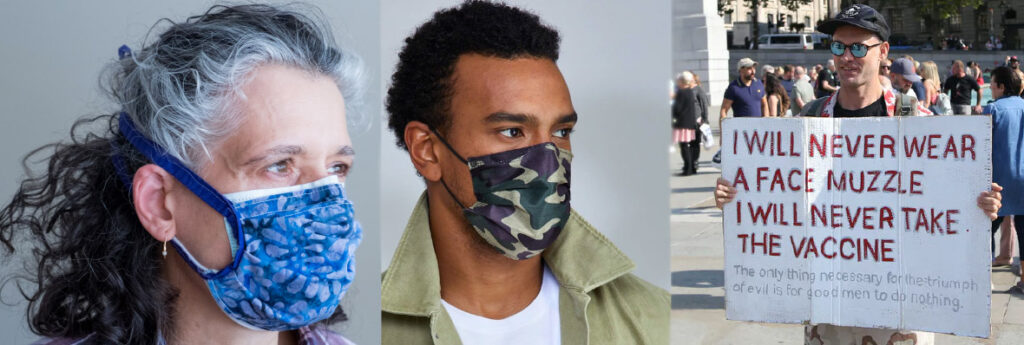The first few days of Canada’s 44th general election campaign are not only highlighting the differences between party leader’s stances on mandatory COVID-19 vaccinations, but also how voters feel about the issue. The upshot? Most support some use of either carrot or stick – though more prefer the stick – to increase inoculation rates as a fourth wave of the pandemic threatens to further delay a return to some semblance of pre-pandemic normalcy.
In an early attempt at creating a wedge between himself and Conservative Party of Canada leader Erin O’Toole, Liberal Party Leader Justin Trudeau announced vaccine mandates covering airline and rail travel and federally regulated employees late last week.
In contrast, asked in the hours after the writs had dropped for his response, O’Toole said he was opposed to mandatory vaccinations, adding he did not view vaccines as a “political issue”.
New data from the non-profit Angus Reid Institute finds political divides in how Canadians want to encourage the unvaccinated to change their minds. While majorities among decided and leaning supporters of all major federal parties support either regulations or incentivization or both to spur higher vaccination levels, the rate of support is lowest among Conservative Party voters (67% vs. 93% for supporters of the Liberals).
Support for government to mandate regulations is high among all age groups, but young men are most resistant. This group has continually been least likely to show concern over COVID-19, but importantly, are also least likely to vote:
The major contrast is among those who say government should do nothing to encourage increased vaccination. While it is the minority view among supporters of the Liberals and NDP (seven and 12%), this sentiment represents fully one-third of Conservative supporters (33%).
No sympathy
Meanwhile, with a higher propensity of those now sick likely to be unvaccinated, patience among the vaccinated is running out. Overall, three-quarters of Canadians (75%) say they have don’t have a lot of sympathy for unvaccinated individuals who contract COVID-19. This rises to 83% among fully vaccinated Canadians. Those who will not be vaccinated have sympathy for anyone who makes the same choice and does, indeed, become ill, though fully 18% of the unjabbed say they have no sympathy either.
More Key Findings:
• Canadians are still proceeding with caution in their daily routines. Nearly all (91%) still sanitize regularly, and most are social distancing (80%) and wearing a mask indoors (79%). That said, Ontario and Quebec residents are almost three times as likely as those in Saskatchewan and Alberta to wears their mask ‘always’ when in close contact with others or indoors.
• Those in the lowest income brackets are most pessimistic about the pandemic. Two-in-five of those in households making less than $50,000 annually still believe the worst of the pandemic is yet to come for their personal finances and the provincial economy.
The Angus Reid Institute conducted the online survey from Aug. 7-10, 2021, among a representative randomized sample of 1,615 Canadian adults who are members of Angus Reid Forum. Results carry a margin of error of plus-minus 2 points 19 times out of 20.

